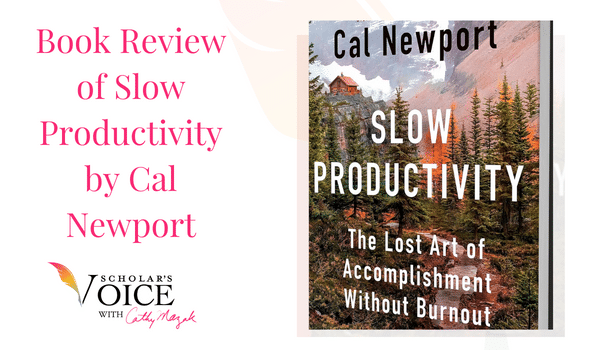Securing Professional Development Funding

Continuous learning through professional development is a key way to accomplish the goals that you and your university share. On this podcast episode, I’m sharing tips and ideas for how to get funding for professional development from your institution.
MORE DETAILS
Although it sometimes might not seem like it, your administration really wants you to succeed–to get tenure, to get promoted, and to stay at your institution. They spent a lot of money finding you. They definitely want to keep you. So guess what? They should be paying for your professional development! But they never will unless you ask. Not sure where to start? Let’s jump in.
Here are three steps you can take to successfully request professional development funding from your university.
Step 1: Identify all the Possible Sources
I have been offering professional development to women professors for a long time and I have seen everyone from students to full professors get funding, even when they thought they couldn’t use start-up or grant money, or their universities initially told them there was no money available. What I’ve learned is that there is always money somewhere; you just have to know where to look and who to ask.
Here are possible sources of professional development funding to explore, and I suggest you tap all of them:
- Your own start-up or professional development funds. If you have such funds, you can absolutely use them to fund all or part of a professional development program like Amplify: The Faculty Writing Accelerator. Even if you already allotted them somewhere else, it may be as easy as talking to your budget office.
- Department chair and dean. They might not be advertising that they have professional development money, but many do. You will need to ask and make a good case for why they should use it on you.
- Professional development office or faculty support office on your campus. If your campus has this office, ask them to fund your participation in a professional development program like Amplify: The Faculty Writing Accelerator. You could offer to hold an on-campus writing workshop based on what you learned or form a faculty writing group (but you don’t have to, and don’t go overboard on promises you make!).
- Faculty or equity diversity office. You can ask this department to fund your professional development as an academic woman. There are plenty of stats you can point them to that reveal that women, especially women of color, are less likely to get promoted in higher ed. And what is THE key to getting a promotion and tenure? Yep, it’s writing. For that reason, your equity/diversity office should be paying to support your writing development.
Step 2: Connect to the Strategic Plan
This is grant-writing 101: align what you are asking for to the institution’s goals. Your university says that it wants to retain women faculty? Quote that in your funding request letter (see this letter template).
Your university’s strategic plan is supposed to be what guides the administration’s decisions. They are committed to that plan because that is how they justify themselves to accreditation bodies. If you want support, you need to intimately know that strategic plan and quote it directly when asking for funding. The more clearly you can connect the outcomes of the professional development program to your strategic plan, the more likely your administration will say “yes.”
Step 3: Ask (and Keep Asking!)
Start asking TODAY. And ask at all levels. Start with your department chair, and keep going up the ranks. Ask all the offices mentioned in step 1. If someone says a flat “no, I don’t have the money,” then ask them for a letter of support that you can take with you to the next ask.
Be sure to continue to follow up with the decision-makers that you ask until you get a solid “yes” or “no.” Don’t let your request sit on someone’s desk until the registration period of your target program closes! If you’ve made it to the position you’re in today, you know how to be persistent, so put that persistence to work.
“It is in your university’s best interest to keep you, to keep you from burning out, and to not have to recruit another person to replace you… so sit with that confidence that says ‘they chose me’.”
So, what professional development program will you choose?
Connect with me:
RELATED PODCASTS
Stay current in Academic Publishing
Subscribe to our newsletter:
In the Pipeline
writing tips, publishing trends, reading recomendations, free workshops





